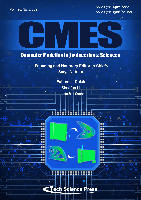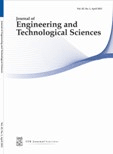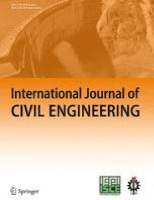
Journal of Engineering Science and Technology
Scope & Guideline
Connecting Academia and Industry for Engineering Excellence
Introduction
Aims and Scopes
- Engineering Applications and Innovations:
The journal emphasizes practical applications of engineering principles in various sectors, including mechanical, civil, electrical, and environmental engineering, showcasing innovations that improve processes and systems. - Sustainable Development and Environmental Engineering:
A core focus area includes research on sustainable engineering practices, environmental protection, and the development of eco-friendly technologies that align with global sustainability goals. - Computational Methods and Modeling:
The journal explores computational techniques and simulation models that enhance engineering design, analysis, and decision-making in complex systems, including the use of artificial intelligence and machine learning. - Interdisciplinary Research:
Encouraging collaboration across disciplines, the journal publishes studies that integrate engineering with fields such as information technology, health sciences, and social sciences to tackle multifaceted problems. - Education and Training in Engineering:
The journal also addresses educational methodologies and technologies in engineering education, focusing on innovative teaching strategies that enhance learning outcomes for students.
Trending and Emerging
- Artificial Intelligence and Machine Learning Applications:
AI and machine learning are increasingly featured in engineering research, focusing on predictive analytics, automation, and optimization in various engineering fields. - Sustainable and Green Engineering:
There is a rising emphasis on sustainable practices, including research on renewable energy technologies, waste management, and eco-friendly materials, reflecting global environmental concerns. - Smart Technologies and IoT Integration:
Research on the integration of smart technologies and the Internet of Things (IoT) in engineering applications is trending, focusing on enhancing efficiency and connectivity in systems. - Digital Transformation in Engineering Education:
Studies exploring the impact of digital tools and online learning methodologies in engineering education are emerging, particularly in response to the COVID-19 pandemic. - Health and Safety Engineering:
The journal is increasingly publishing research on health and safety engineering, particularly in the context of public health concerns and the implications of engineering practices on community health.
Declining or Waning
- Traditional Manufacturing Techniques:
Research related to traditional manufacturing processes has seen a decline as newer technologies, such as additive manufacturing and automation, gain prominence in the industry. - Conventional Energy Sources:
There is a noticeable decrease in studies focusing on fossil fuels and conventional energy sources, overshadowed by the increasing interest in renewable energy solutions and sustainability. - Basic Theoretical Studies:
Research that emphasizes fundamental theoretical frameworks without immediate practical application has waned, as the journal increasingly favors studies with direct implications for engineering practice. - Stand-Alone Engineering Disciplines:
The separation of engineering disciplines has diminished, with a growing trend towards interdisciplinary approaches that integrate multiple fields to address complex engineering challenges. - Localized Case Studies:
There has been a shift away from localized case studies that do not have broader implications or applications, as the journal seeks to publish research with global relevance and applicability.
Similar Journals

CMES-COMPUTER MODELING IN ENGINEERING & SCIENCES
Empowering Innovation through Modeling & SimulationCMES-COMPUTER MODELING IN ENGINEERING & SCIENCES is a premier journal published by Tech Science Press, dedicated to advancing knowledge in the fields of computer science applications, modeling and simulation, and software engineering. With an impressive convergence of research from 2000 to 2024, this journal stands out as a vital resource for researchers, professionals, and students alike, fostering innovation and collaboration in computational methodologies. The journal currently holds a Q3 category ranking in multiple disciplines according to the latest metrics, including Scopus, which reflects its growing significance in the academic community. By providing a platform for high-quality research and open discourse, CMES aims to enhance the understanding of complex systems through effective modeling techniques and computational tools. Despite its current classification under open access, the journal remains a cornerstone for those looking to deepen their expertise in cutting-edge computational engineering and science.

EMITTER-International Journal of Engineering Technology
Empowering Engineers with Open Access to Pioneering ResearchEMITTER-International Journal of Engineering Technology is a distinguished and innovative journal published by POLITEKNIK ELEKTRONIKA NEGERI SURABAYA, focusing on the dynamic field of engineering technology. Since its inception in 2013 as an Open Access journal, it has been dedicated to advancing the dissemination of high-quality research that bridges theoretical knowledge and practical applications. With an ISSN of 2355-391X and an E-ISSN of 2443-1168, EMITTER invites researchers and practitioners to engage with critical topics in electrical engineering, software development, and technology integration. The journal aims to foster a collaborative environment for the sharing of groundbreaking insights that enhance technological development and innovation in engineering practices, making it an essential resource for academics, industry professionals, and students alike in the ever-evolving landscape of technology.

Tehnicki Vjesnik-Technical Gazette
Connecting Ideas, Inspiring Engineering ExcellenceTehnicki Vjesnik-Technical Gazette is a distinguished open-access journal published by the University of Osijek, Technical Faculty, specializing in the broad field of engineering. With its ISSN 1330-3651 and E-ISSN 1848-6339, the journal has been a platform for disseminating innovative research and technical advancements since its inception in 1994. As part of the Scopus rankings, it holds a respectable position in the Q3 category of Engineering (miscellaneous), specifically ranking #165 out of 307 in the General Engineering field, which places it in the 46th percentile. This journal invites contributions from diverse engineering disciplines and aims to foster collaboration and knowledge sharing amongst researchers, professionals, and students. With its commitment to open access since 2006, Tehnicki Vjesnik ensures that research findings are readily available to a global audience, thereby enhancing visibility and impact. Located in Slavonski Brod, Croatia, this journal serves as a pivotal resource for anyone seeking to stay at the forefront of engineering innovations.

Engineering Journal-Thailand
Pioneering new frontiers in engineering scholarship.Engineering Journal-Thailand, published by Chulalongkorn University, Faculty of Engineering, is a prominent academic journal dedicated to advancing knowledge and research in the diverse field of engineering. With an ISSN of 0125-8281 and an unwavering commitment to quality, the journal has established a substantial presence in the academic community since its inception in 2009. As of 2023, it is ranked in the Q3 category for Engineering (miscellaneous) and has achieved a Scopus rank of 137 out of 307, placing it in the 55th percentile of general engineering journals. Although it operates without open access, its impact within the engineering domain is significant, providing a vital platform for researchers, professionals, and students to disseminate their findings and engage with contemporary engineering challenges. The journal serves as a vital resource for those seeking to stay at the forefront of engineering innovation and contributes to the global discourse by bridging local insights with international perspectives.

Civil Engineering Journal-Stavebni Obzor
Innovative Research, Unbound by BarriersWelcome to the Civil Engineering Journal-Stavebni Obzor, an esteemed academic publication dedicated to advancing the field of civil engineering. Published by the Czech Technical University in Prague, Faculty of Civil Engineering, this journal has provided a platform for innovative research and critical discourse since its inception. With an ISSN of 1210-4027 and an E-ISSN of 1805-2576, this Open Access journal has been facilitating wide dissemination of knowledge in civil engineering since 2014, ensuring that valuable research reaches a global audience without barriers. The journal is committed to fostering collaboration among researchers, professionals, and students, encouraging the exchange of ideas that drive the discipline forward. Its diverse scope encompasses various aspects of civil engineering, making it an essential resource for anyone looking to stay at the forefront of this dynamic field. Located in Prague, a hub of engineering excellence, this journal not only reflects the latest trends and innovations but also contributes to shaping the future of civil engineering.

Journal of Engineering and Technological Sciences
Advancing Engineering Excellence GloballyJournal of Engineering and Technological Sciences, published by ITB JOURNAL PUBL, is a prominent open-access journal dedicated to advancing knowledge in various engineering disciplines and applied sciences. With an impact factor that highlights its growing influence, this journal supports a broad scope of topics, including Chemical Engineering, Civil and Structural Engineering, Earth-Surface Processes, Environmental Science, and Materials Science, as well as Mechanical Engineering. The journal has been sharing impactful research since 2013 and continues to bridge gaps between theory and practical application within the engineering community. Leveraging its Q2 and Q3 category quartile rankings in key engineering fields and solid standings in Scopus rankings, it provides a vital platform for researchers, practitioners, and students alike. Based in Indonesia, at the LPPM ITB Rectorate Building in Bandung, the journal emphasizes global contributions and innovations in engineering, making it an essential resource for cutting-edge research worldwide.

KOREAN JOURNAL OF CHEMICAL ENGINEERING
Fostering Global Collaboration in Chemical Research.The Korean Journal of Chemical Engineering is a prestigious publication by the Korean Institute of Chemical Engineers, dedicated to advancing the field of chemical engineering and its associated sciences. Established in 1984, this journal has made significant contributions to the dissemination of innovative research, covering a broad spectrum of topics within chemical engineering and general chemistry. With a current impact factor placing it in the Q2 quartile within both the chemical engineering and chemistry categories, it is recognized for its rigorous peer-review process and high-quality articles. The journal provides a valuable platform for researchers, professionals, and students to share their findings and collaborate on emerging methodologies and technologies. Although it does not offer open access options, its broad international readership, bolstered by its Scopus rankings — including a commendable #108 in general chemical engineering — ensures widespread visibility and dissemination of published works. As it approaches its 40th anniversary in 2024, the Korean Journal of Chemical Engineering continues to be an essential resource for anyone engaged in the field, driving innovation and academic dialogue worldwide.

Applications in Engineering Science
Exploring the Future of Engineering ApplicationsApplications in Engineering Science is an innovative and highly-regarded open-access journal, published by ELSEVIER in the United Kingdom, focusing on the cross-disciplinary fields of Civil and Structural Engineering, Computational Mechanics, and Mechanical Engineering. Since its inception in 2020, the journal has rapidly established a solid reputation, landing in the Q2 quartile category across multiple engineering disciplines, reflecting its commitment to quality and relevance in the rapidly evolving engineering landscape. With Scopus rankings placing it prominently in the 66th percentile for Computational Mechanics and 58th for Mechanical Engineering, it serves as a vital platform for researchers, professionals, and students alike to share advanced methodologies, innovative applications, and interdisciplinary insights. The journal is committed to fostering open access to cutting-edge research, empowering readers worldwide to stay abreast of significant technological advancements and practical applications in engineering science.

Journal of Zhejiang University-SCIENCE A
Pioneering Insights in Engineering Science.The Journal of Zhejiang University-SCIENCE A, published by Zhejiang University Press, is a prestigious academic journal dedicated to advancing the field of Engineering since its first issue in 2003. With an ISSN of 1673-565X and E-ISSN of 1862-1775, this journal has established itself as a significant platform for researchers, professionals, and students interested in the multifaceted aspects of engineering science. Located in the heart of Hangzhou, China, the journal has successfully attained a Q2 rating in the 2023 quartiles for Engineering (miscellaneous), showcasing its impact and quality within the discipline, complemented by a commendable Scopus rank of #57 out of 307, placing it in the 81st percentile. Although it does not currently offer Open Access, the journal is committed to disseminating high-quality research findings that foster innovation and collaboration within the engineering community. The journal's scope encompasses a wide range of engineering topics, reflecting the rigorous and evolving nature of the discipline, making it an invaluable resource for advancing academic knowledge and practical applications in engineering.

International Journal of Civil Engineering
Building Knowledge, Shaping the Future of Civil EngineeringThe International Journal of Civil Engineering, published by Springer International Publishing AG, is a premier platform dedicated to advancing the field of civil engineering. With a notable impact factor and a strong reputation reflected in its Q2 quartile rankings in both Civil and Structural Engineering as well as Geotechnical Engineering and Engineering Geology, this journal facilitates the dissemination of high-quality research from 2009 through 2024. Researchers and professionals can access cutting-edge studies and innovative practices that address contemporary challenges in civil engineering, such as sustainable infrastructure development, environmental impacts, and advanced material technologies. Situated in Switzerland, the International Journal of Civil Engineering emphasizes the critical interplay between theory and application, making it an essential resource for students, academics, and industry leaders seeking to stay at the forefront of their disciplines.